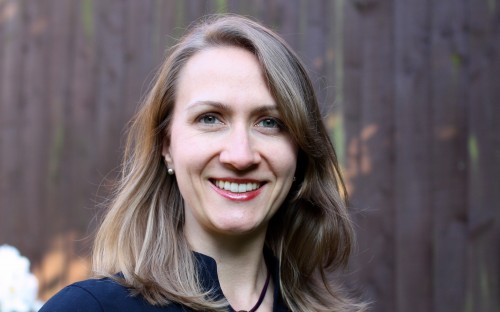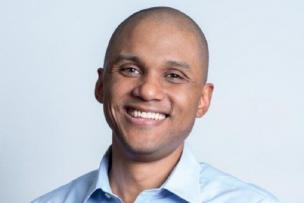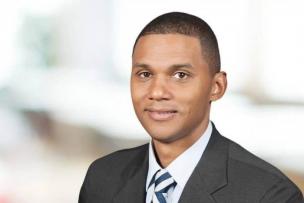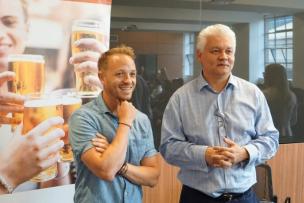Have you ever wanted to put your current role on pause to test out your skills in a completely different environment? But still have the security of your job and salary waiting for when you return? This is exactly what the Bain externship programme offers to its employees worldwide in their third or fourth year: the chance to follow a passion and become a leader in another field.
Bain & Company’s London-based consultant Luba Mandzy Herring has been working for Bain since 2008 when she left academia. But in 2011, she briefly paused her role as a Bain consultant to participate in the Bain externship programme and to take on a development role at national charity The Challenge Network. This role was an ideal situation for Mandzy Herring, she said, because she could involve herself in social impact work and “challenge” herself as well: she raised around one million pounds for the charity in her year there!
What is the Bain externship programme?
The externship programme was started in 1996 to attract, motivate and retain top performers and it’s an opportunity to work with different organizations. This is really exciting for externs themselves, but it’s also beneficial for Bain. Externs have a risk-free opportunity to test out a passion for a particular industry, to diversify their skillset, to see a business from a client’s point of view and to expand their professional network. But at the same time, when they come back, they are passionate and enthusiastic and see things from a different angle. They learn a lot of different skills, especially around client engagement. It’s a win-win situation for externs and for Bain.
How many people participate in the programme?
Since 2011, more than 200 Bain employees globally have participated in externships.
What is The Challenge Network and why did you go there as an extern?
The Challenge Network tackles social segregation in the UK and works on a local level to connect people across all walks of life. They run community programmes that bring together very diverse people and are the largest provider of the UK government’s National Citizen Service programme for 15- to 17-year-olds.
In terms of motivation, I am very involved with social impact. Since joining Bain, I’ve been involved in Bain Cares, the social impact programme that enablesBain employees to engage in their local community. I’ve always been interested in testing my passion in the field by working for a social enterprise. So an externship, which was a risk-free way to test my passion, was ideal for me.
Bain London is a founding member of the Social Business Trust, a partnership of seven businesses who use their resources and expertise to help accelerate the growth of social enterprises. One of its first investments was The Challenge Network. We led a pro bono case with The Challenge Network helping them develop their growth strategy. Led by a fantastic senior leadership team, The Challenge Network achieved really impressive results: The Challenge Network grew three times its size in a year, which I think is an amazing result for any organization. Bain played a helping hand in that. The opportunity to be an extern at The Challenge Network came from that relationship and it was advertised at a point in time where I was ready for an opportunity like this.
What were some projects you worked on while you were there?
I was the Director of Development, so I sat on the senior leadership team. My role was basically threefold. I was responsible for raising a million pounds in the year I was there to fund the new graduate programme. Secondly, I was responsible for building the fundraising department and defining what the strategy was for fundraising and hiring the teams. And third, as a member of the senior leadership team, I helped with the strategic direction of the organization. I helped coordinate the effort for their next big government contract. It was a great opportunity to put into practice a lot of things I learned at Bain as a consultant into a real organizational setting. In my year there, we raised around a million pounds and won the government contract, so it was a successful experience.
You studied environmental science at Harvard and also at Oxford. Why did you decide to become a consultant?
I am still very passionate about environmental issues. When I did my PhD at Oxford, I realized over time that I wanted something that had more immediate results and was more team-based. When I made the decision to leave academia, I was looking at opportunities in different industries and what I realized is that consulting, at the time, provided the best of both worlds. It gave me that immediate impact, it was really team-based, provided the ability to work with clients, it was very people-focused, but at the same time it provided the rigor and intellectual stimulation that I loved about academia. It was really win-win for me.
What has been the highlight of your career at Bain so far? And what challenges have there been?
There is not one particular highlight, but just the consistency of the incredible people I work with and the diversity of projects. What gets me up every morning is knowing that I’m working with some of the smartest, most passionate people I’ve met and they are constantly challenging me. I’m always learning because I’m always exposed to different problems in different industries. And that’s really exciting for me.
I think the nature of consulting is that it is very intense and that the people who do consulting are very passionate for their work. And the intensity is very exciting, as I mentioned before, but can sometimes be tiring and unpredictable. I think that’s the challenge of consulting and professional services in general, but it’s part of the equation.
When considering companies you’ve worked with, are there any that stand out to you as innovators as far as social and environmental impact?
It’s tough to come up with one particular example because there is a growing body of organizations across industries and geographies that are really innovating. I think there’s an interesting trend here: one is that there is an increasing number of social enterprises whose sole reason for being is tackling social problems. Whether it be an organization that trades in “junk” to prevent landfill accumulation to fair trade groups protecting local farmers, there are so many interesting examples where you think, ‘I wouldn’t have even thought of that!’
But on the big business side, I think there is increasing innovation for three reasons. One is that it is still very important for company image. But also it makes good business. Businesses are always looking to cut their costs and protect their resources and that aligns very well with social and environmental sustainability. And finally, they are innovating because they know it’s important to their employees. They know that employees are increasingly excited about social impact and to work for a company where that matters. So they are investing in programs that enable employees to get involved. The fact that Bain has a social impact programme that does pro bono work shows that social impact is really part of the DNA of Bain – it was a big selling point for me.
RECAPTHA :
13
f7
6c
be







